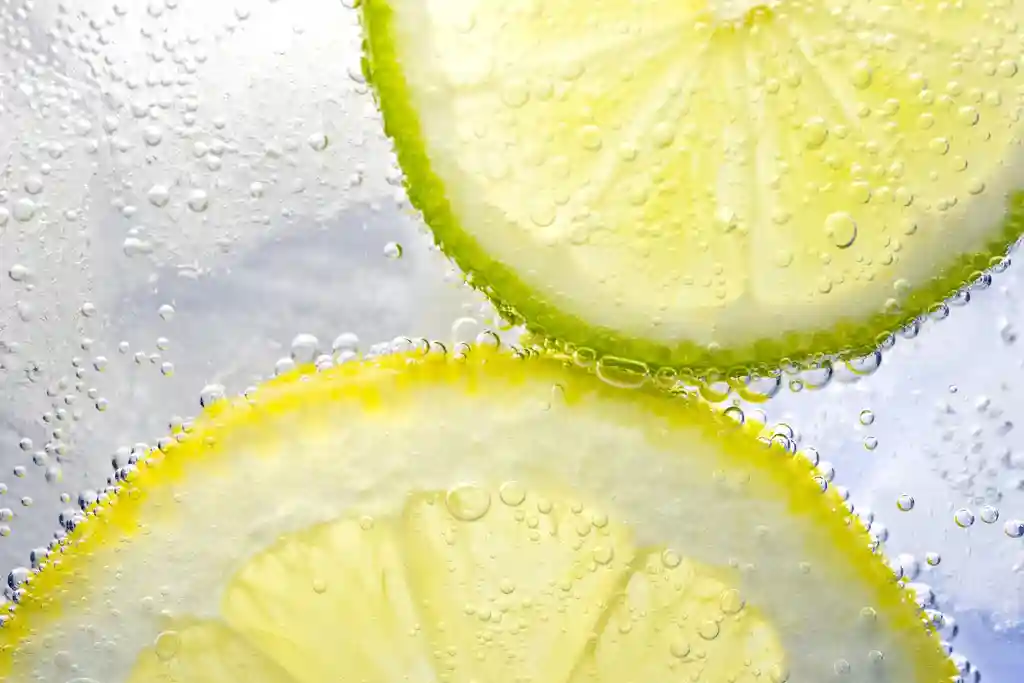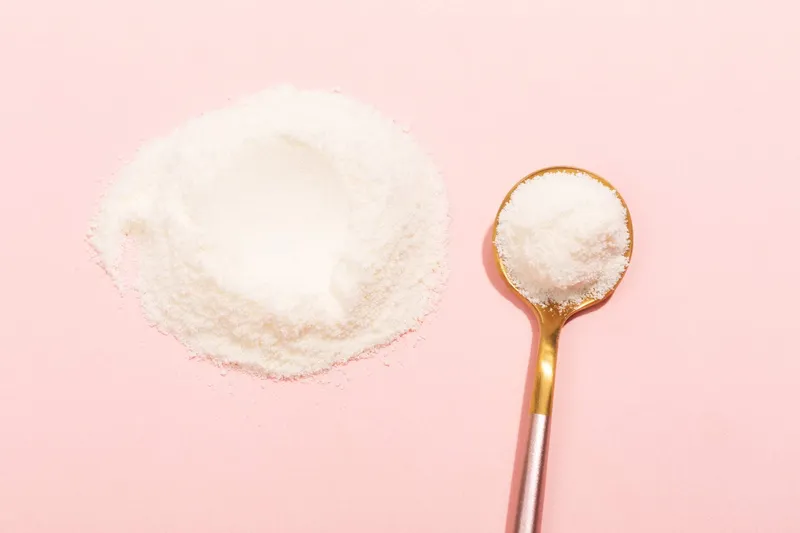
I once had a friend sheepishly confess a three-can-a-day LaCroix habit to me. Sure, her weekly grocery bill might have been a bit steeper, but did she have any reason to feel guilt? To be honest, I had always just assumed sparkling water was perfectly healthy. So I decided to dig in and find the facts.
First, a quick primer: There are a few different kinds of fizzy water. Club soda contains added minerals including sodium (12 ounce of a leading club soda has 4 percent of the Daily Value for sodium). Mineral water contains natural minerals like magnesium and calcium. Tonic water contains quinine, a bitter compound from the bark of a tree, plus sweetener (sometimes several teaspoons per serving!). Sparkling waters like LaCroix and Bubly are carbonated water and contain added flavoring but no sodium or sweeteners.
When it comes to sparkling water, specifically, here’s what I found out:
Is it healthy? It’s better than soda, that’s for sure. Sugary drinks like soda, sweetened tea, and lemonade are the number-one source of added sugar for adults. In research, sugar-sweetened beverages are associated with a higher risk for obesity, type 2 diabetes, and heart disease. Even diet sodas may have downsides. Sparkling water typically doesn’t contain any sweetener, so if sparkling water satisfies your cravings for something fizzy and lets you skip soda, you’re much better off.
Is it hydrating? Yes. UK researchers tested how hydrating 13 different drinks were (based on urine output) and found that sparkling water was just as hydrating as plain water. Makes sense considering sparkling water is simply 100% water, plus carbonation for fizz (and a slightly tangy flavor) and natural flavors.
Is it harmful to your bones? No. Some previous research linked carbonated drinks with a higher risk of fractures. The thinking was that those drinks triggered the body to excrete calcium in the urine. But in a study of 20-40 year old women, that effect was only seen in caffeinated beverages (and even then, the effect was deemed minor). Most sparkling water is not caffeinated, but check labels if you’d like to avoid it.
Is it bad for your teeth? Maybe. The issue is that sparkling water has a lower pH than water--meaning it’s more acidic and has the potential to erode enamel, the protective coating around your teeth. Drinks that have a pH below 4 are thought to be potentially harmful to teeth, and researchers have found that sparkling water has a pH between 2.74 – 3.34. That’s on par with orange juice and only slightly less acidic than soda.
What makes it so acidic? Regular carbonation lowers the pH, and a common ingredient in sparkling water (and soda) called citric acid, used as a flavoring and preservative, lowers it even more.
Bottom line: Sparkling water can help keep you hydrated and is a healthy swap for soda. Just be aware that sipping it throughout the day probably isn’t great for your teeth. A better option would be to drink your sparkling water along with a meal or to chase it with plain water or a tooth-brushing (and avoid swishing fizzy water through your teeth, which sounds weird but some people do it!). And if you already have issues with weak enamel, it’s smart to ask your dentist whether you should steer clear entirely.
But there are no health advantages to fizzy water over plain. So if you like your water flat, by all means keep drinking it. You’ll save a lot of money that way too!
Important:The opinions expressed in WebMD Blogs are solely those of the User, who may or may not have medical or scientific training. These opinions do not represent the opinions of WebMD. Blogs are not reviewed by a WebMD physician or any member of the WebMD editorial staff for accuracy, balance, objectivity, or any other reason except for compliance with our Terms and Conditions. Some of these opinions may contain information about treatments or uses of drug products that have not been approved by the U.S. Food and Drug Administration. WebMD does not endorse any specific product, service or treatment.
Do not consider WebMD Blogs as medical advice. Never delay or disregard seeking professional medical advice from your doctor or other qualified healthcare provider because of something you have read on WebMD. You should always speak with your doctor before you start, stop, or change any prescribed part of your care plan or treatment. WebMD understands that reading individual, real-life experiences can be a helpful resource, but it is never a substitute for professional medical advice, diagnosis, or treatment from a qualified health care provider. If you think you may have a medical emergency, call your doctor or dial 911 immediately.









